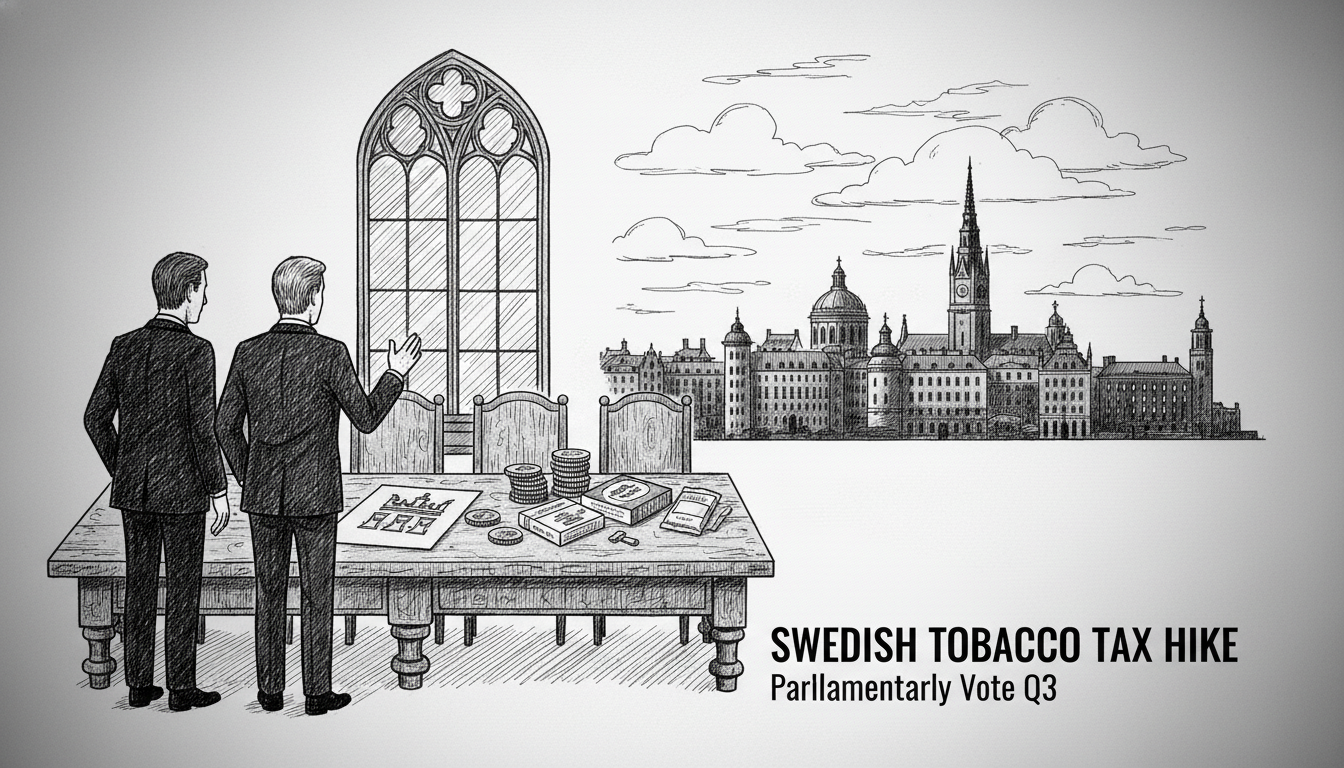The Swedish government has submitted a comprehensive tobacco taxation proposal to the Riksdag for legislative consideration. This initiative would increase excise duties on cigarettes, cigars, cigarillos, smoking tobacco, chewing tobacco, and other tobacco products starting in the third quarter. The tax framework includes standard indexation adjustments plus an additional 3.5 percent surcharge on most tobacco categories, though snus receives only the standard adjustment without the supplementary increase.
Health Minister Mikael Damberg emphasized the public health objectives behind this government policy Sweden initiative during parliamentary discussions. The taxation strategy aims to reduce tobacco consumption through price mechanisms that discourage usage, particularly among younger demographics. The minister's statement outlined how increased costs typically correlate with decreased consumption patterns across multiple international studies.
Specific financial impacts include cigarette taxes rising from 2.08 kronor to 2.15 kronor per unit, while snus taxation increases by one krona per kilogram. These adjustments represent the latest in Sweden's gradual approach to tobacco regulation, balancing public health goals against economic considerations. The Riksdag decisions on this matter will follow standard committee review processes before reaching the full parliamentary chamber for voting.
Government officials acknowledge potential unintended consequences including possible increases in cross-border smuggling and illegal tobacco trade. The risk assessment documents note that previous tobacco tax increases generated minimal criminal activity, suggesting limited systemic vulnerability. The Swedish Parliament has historically supported similar public health measures despite concerns about regressive taxation effects on lower-income households.
Stockholm politics observers note this proposal continues Sweden's distinctive approach to tobacco regulation, maintaining the country's exceptional snus exemption within European Union frameworks. The government districts surrounding Rosenbad have coordinated this initiative with public health agencies to align taxation policy with broader wellness objectives. Previous Riksdag decisions on tobacco have typically followed government recommendations with modest amendments during legislative review.
The parliamentary process requires multiple readings and committee evaluations before implementation. Opposition parties have questioned the timing and magnitude of increases during economic uncertainty, though most acknowledge the public health rationale. The Swedish government's taxation approach reflects ongoing tension between revenue generation and behavioral modification objectives in public policy.
International observers frequently study Swedish tobacco regulation for its unique balance of prohibition and harm reduction principles. The current proposal maintains Sweden's differentiated treatment of snus compared to other tobacco products, recognizing cultural traditions while discouraging new usage patterns. These Stockholm politics dynamics illustrate how Swedish Parliament actions often blend pragmatic compromise with ideological consistency across legislative sessions.
The government's fiscal analysis projects substantial revenue increases despite anticipated consumption declines, though precise estimates remain confidential during preliminary deliberations. Ministry officials have coordinated with customs and border protection agencies to address potential enforcement challenges arising from price differentials with neighboring countries. The Riksdag building will host extensive debate on these measures throughout the upcoming legislative session.

